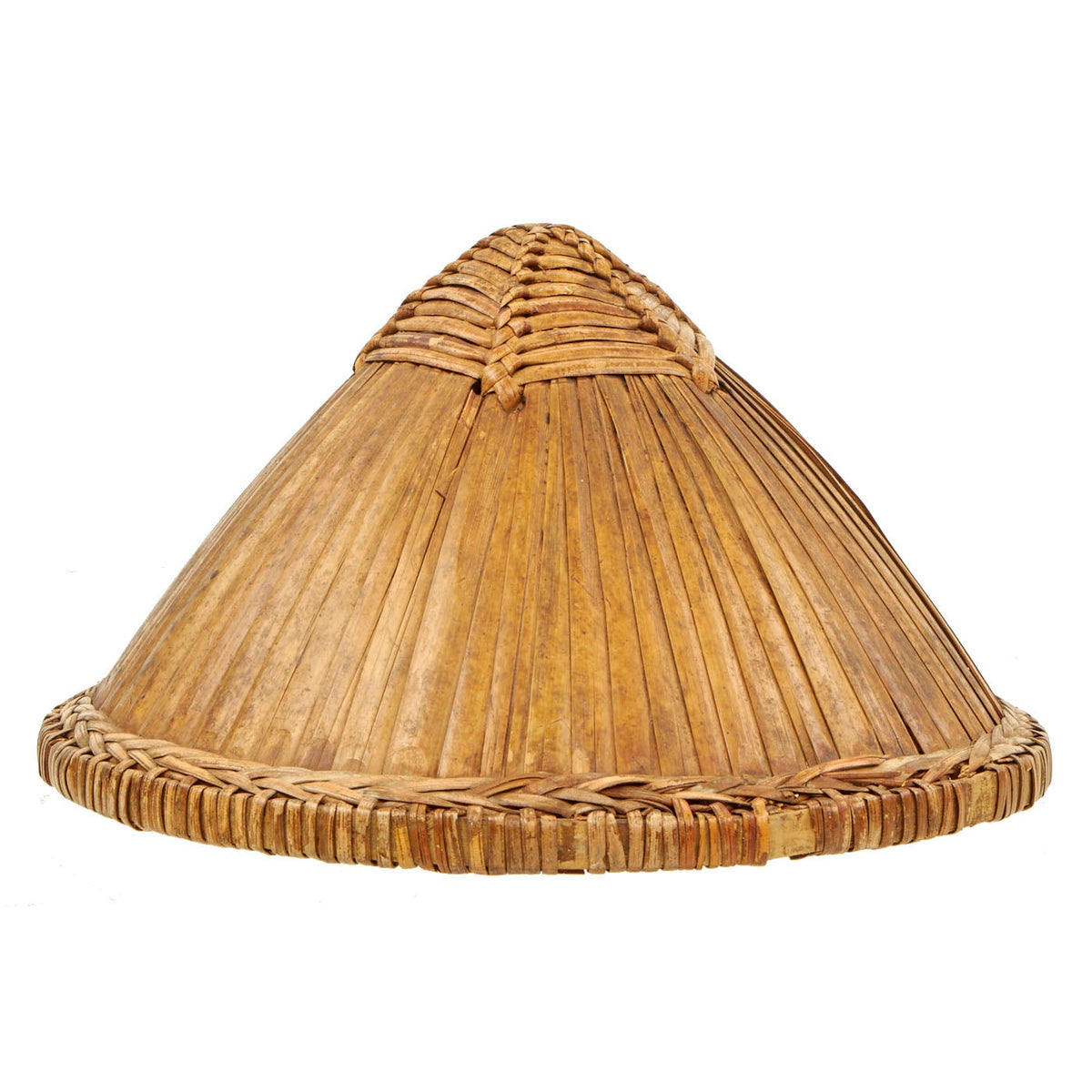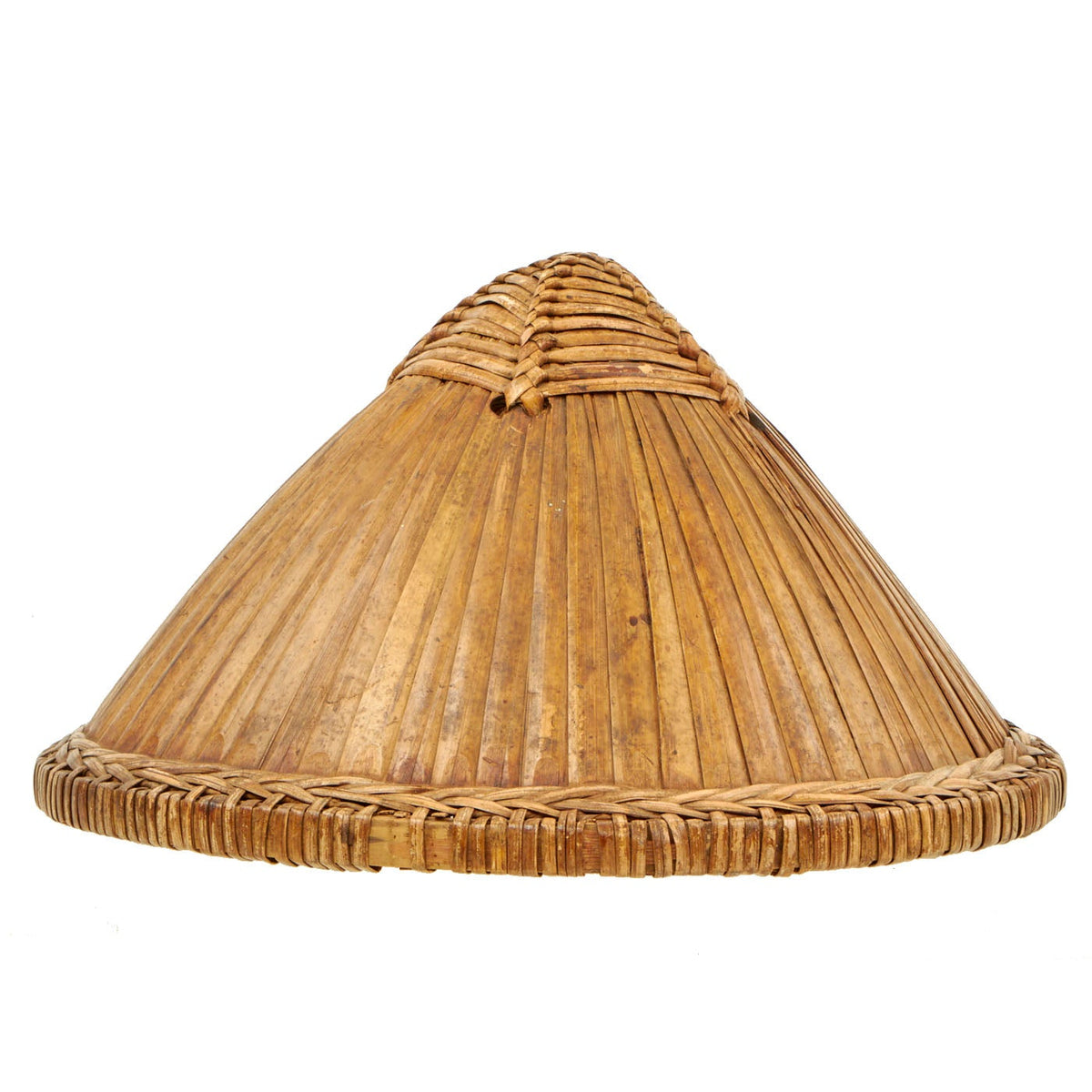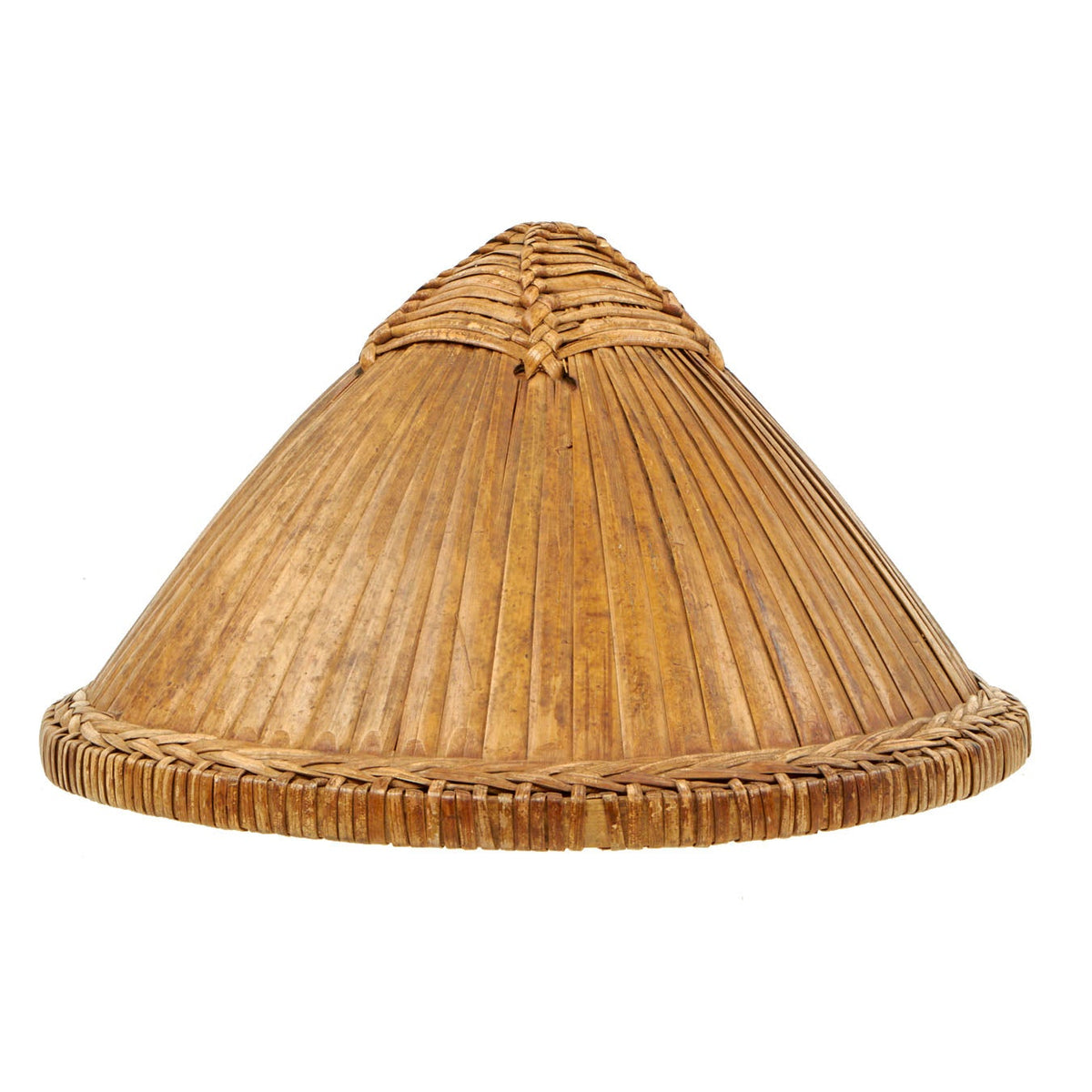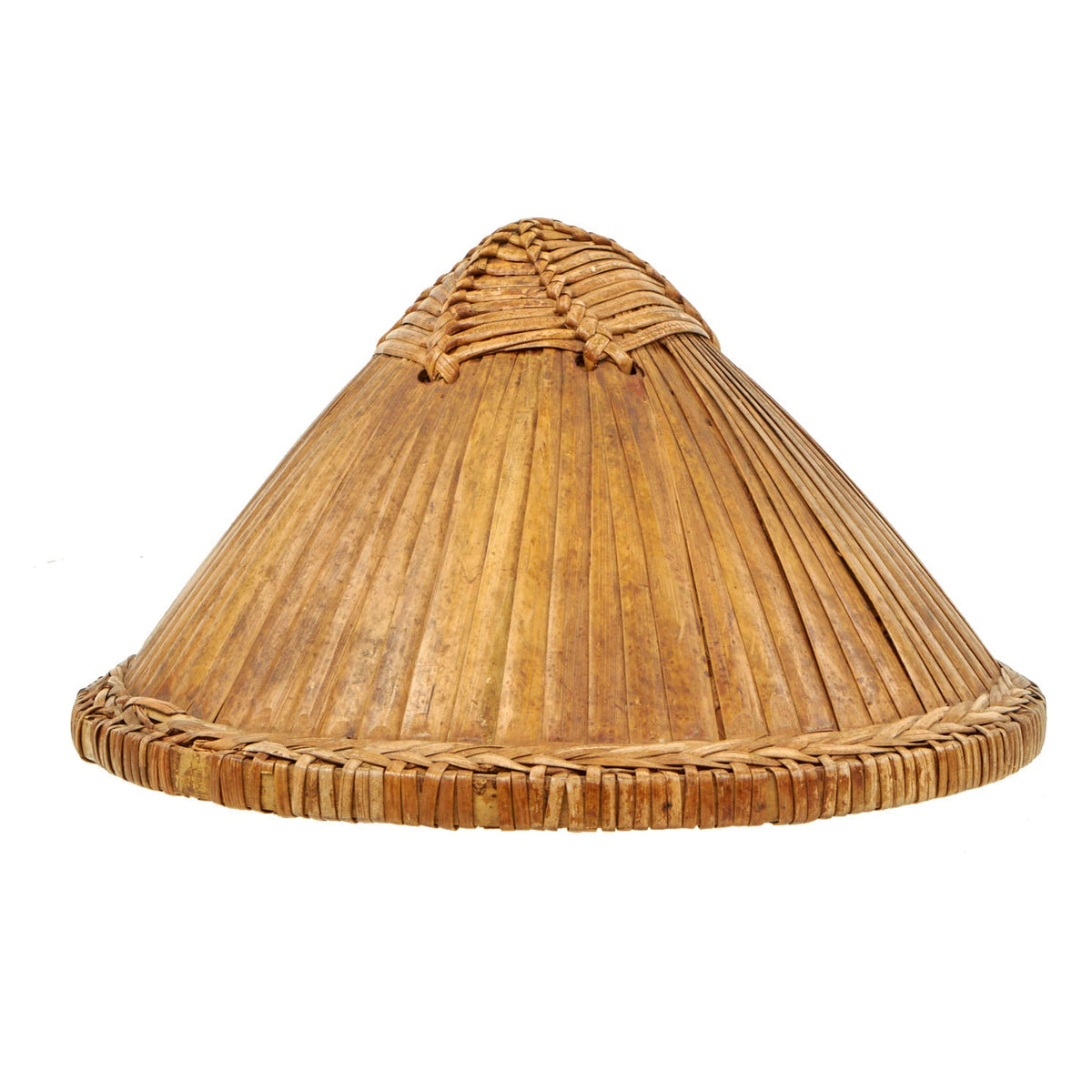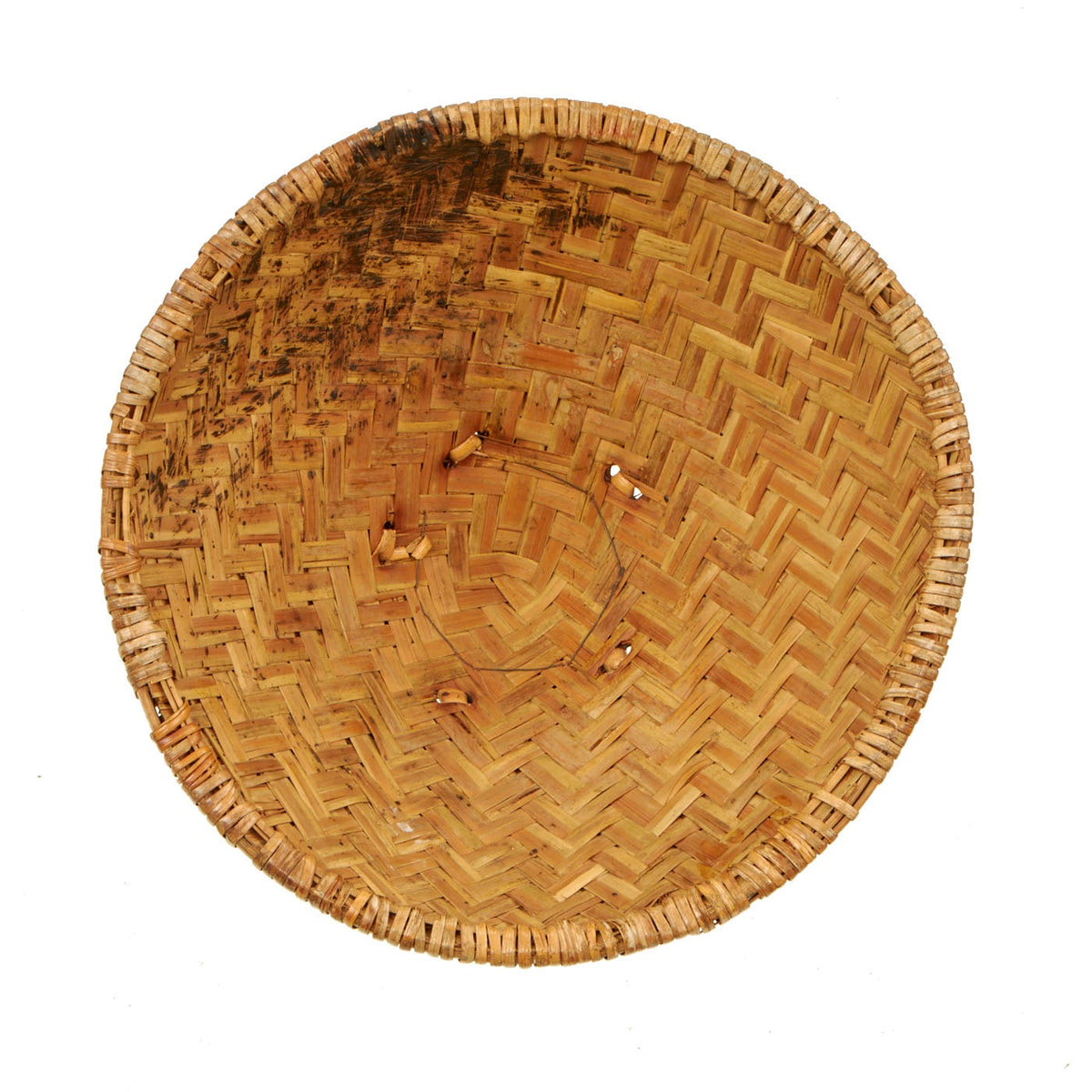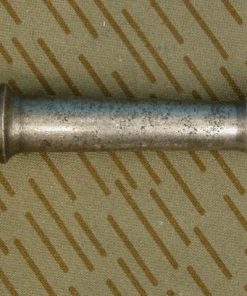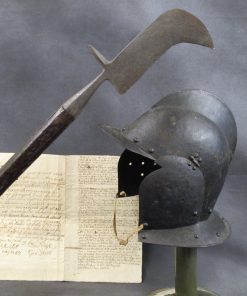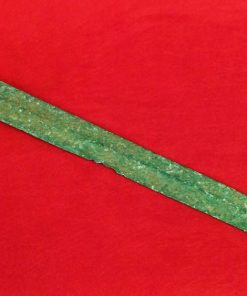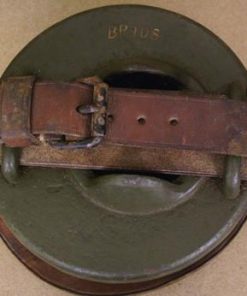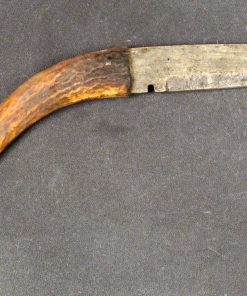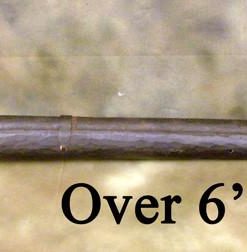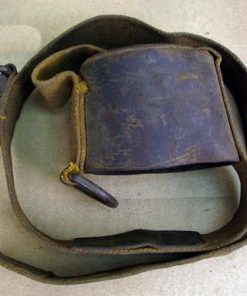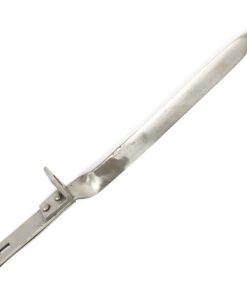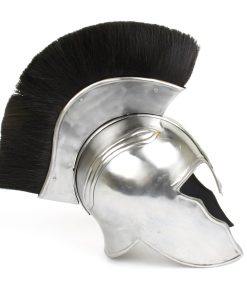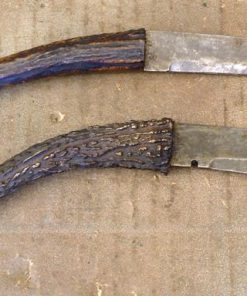Original Chinese Boxer Rebellion Plaited Bamboo Wicker Boxer Helmet c. 1895 Original Items
$ 495,00 $ 148,50
Original Item: Only One Available. This is a very nice Chinese boxer rebellion era helmet, made from plaited bamboo wicker. It measures just under 11 inches across, and about 6 inches in height, with no liner or straps inside. A simple design, not very effective against modern weapons, but still afforded some level of protection.
Condition is quite good, with just some staining on the inside, and light overall wear.
The Boxer Rebellion lasted from 1898 and lasted from 1899 – 1901 but affected the way the European and Western powers treated China thereafter. Remember the great movie 55 Days at Peking from 1963, where of course Charlton Heston once again saves mankind all on his own! Nevertheless a truly great movie.
The Boxer Rebellion:
The Boxer Rebellion, Boxer Uprising or Yihetuan Movement was a violent anti-foreign, anti-colonial, and anti-Christian uprising that took place in China between 1899 and 1901, towards the end of the Qing dynasty. It was initiated by the Militia United in Righteousness (Yihetuan), known in English as the “Boxers”, and was motivated by proto-nationalist sentiments and opposition to Western colonialism and associated Christian missionary activity.
The uprising took place against a background of severe drought and the disruption caused by the growth of foreign spheres of influence. After several months of growing violence against both the foreign and Christian presence in Shandong and the North China plain in June 1900, Boxer fighters, convinced they were invulnerable to foreign weapons, converged on Beijing with the slogan “Support the Qing government and exterminate the foreigners.” Foreigners and Chinese Christians sought refuge in the Legation Quarter. In response to reports of an armed invasion to lift the siege, the initially hesitant Empress Dowager Cixi supported the Boxers and on June 21 issued an Imperial Decree declaring war on the foreign powers. Diplomats, foreign civilians and soldiers as well as Chinese Christians in the Legation Quarter were placed under siege by the Imperial Army of China and the Boxers for 55 days.
Chinese officialdom was split between those supporting the Boxers and those favoring conciliation, led by Prince Qing. The supreme commander of the Chinese forces, the Manchu General Ronglu (Junglu), later claimed that he acted to protect the besieged foreigners. The Eight-Nation Alliance, after being initially turned back, brought 20,000 armed troops to China, defeated the Imperial Army, and arrived at Peking on August 14, relieving the siege of the Legations. Uncontrolled plunder of the capital and the surrounding countryside ensued, along with the summary execution of those suspected of being Boxers.
The Boxer Protocol of 7 September 1901 provided for the execution of government officials who had supported the Boxers, provisions for foreign troops to be stationed in Beijing, and 450 million taels of silver (approximately $10 billion at 2017 silver prices and more than the government’s annual tax revenue) to be paid as indemnity over the course of the next thirty-nine years to the eight nations involved. The Empress Dowager then sponsored a set of institutional and fiscal changes in an attempt to save the Dynasty by reforming it.
Fast Shipping with Professional Packaging
Thanks to our longstanding association with UPS FedEx DHL, and other major international carriers, we are able to provide a range of shipping options. Our warehouse staff is expertly trained and will wrap your products according to our exact and precise specifications. Prior to shipping, your goods will be thoroughly examined and securely secured. We ship to thousands clients each day across multiple countries. This shows how we're dedicated to be the largest retailer on the internet. Warehouses and distribution centres can be located throughout Europe as well as the USA.
Note: Orders with more than one item will be assigned a processing date depending on the item.
Before shipping before shipping, we'll conduct a thorough inspection of the items you have ordered. Today, the majority of orders will be delivered within 48 hours. The delivery time will be between 3-7 days.
Returns
The stock is dynamic and we cannot completely manage it because multiple stakeholders are involved, including our factory and warehouse. So the actual stock may alter at any time. It's possible that you may not receive your order once the order has been made.
Our policy is valid for a period of 30 days. If you don't receive the product within 30 days, we are not able to issue a refund or an exchange.
You can only return an item if it is unused and in the same state as the day you received it. You must have the item in its original packaging.
Related products
Uncategorized
Uncategorized
Australian WWII Owen MK1 Machine Carbine SMG Custom Fabricated Replica with Sling Original Items
Uncategorized
Armored Burgonet Helmet & Polearm from Scottish Castle Leith Hall Circa 1700 Original Items
Uncategorized
Uncategorized
Uncategorized
Uncategorized
Uncategorized
Uncategorized
Uncategorized
Uncategorized
Uncategorized
Uncategorized
Uncategorized
Uncategorized
Uncategorized
Band of Brothers ORIGINAL GERMAN WWII Le. F.H. 18 10.5cm ARTILLERY PIECE Original Items
Uncategorized
Uncategorized
Uncategorized
Armoured Fighting Vehicles of the World: AFVs of World War One (Hardcover Book) New Made Items
Uncategorized
Angolan Rebel 1970s era 60mm Inert Display Mortar from Angolan Civil War Original Items
